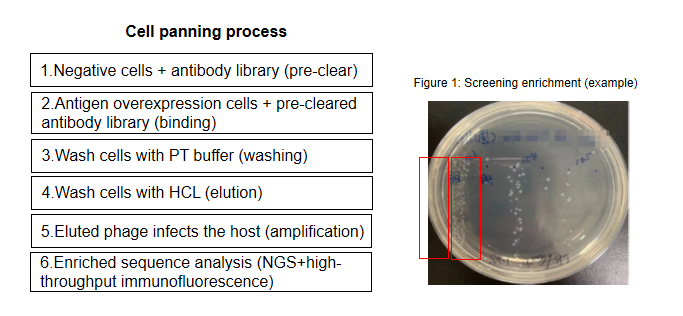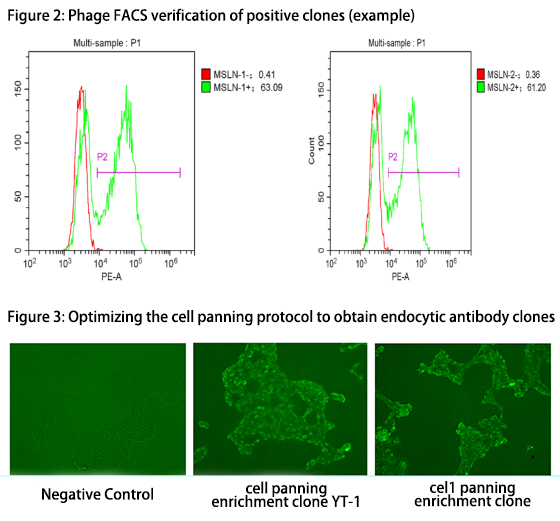Cases
Screening of Multi-pass Transmembrane Proteins
Background:
Multi-pass transmembrane proteins are protein molecules with hydrophobic transmembrane domains that traverse the cell membrane phospholipid bilayer and cross the intracellular and extracellular environments. They have diverse functions, and compared to single-pass transmembrane proteins, multi-pass transmembrane proteins can form hydrophobic channels to transport molecules or act as signal receptors (G protein) to transmit complex signals. Many human diseases may be related to abnormal functions of transmembrane proteins, and their multifunctionality makes them ideal drug targets.
Service process:
Compared to other antigens, the large molecular weight and complex structure of multi-pass transmembrane proteins make it difficult to prepare recombinant proteins, so the screening of antibodies against multi-pass transmembrane proteins is performed by antigen presentation on the cell surface. However, there are inherent drawbacks to antigen presentation on the cell surface, as besides the target antigen, there are also other irrelevant antigens presented on the overexpressing cells, resulting in poor specificity of directly screened antibodies. To address this issue, ABLINK introduced a pre-clearing step before the routine screening process, which involves removing antibodies that bind to unrelated antigens by first binding the antibody library to negative cells that do not express the target antigen. After pre-clearing, the antibody library is then bound to overexpressing cells, and after 3-5 rounds of enrichment screening, positive clones are subjected to phage FACS/IF verification. The cell panning process optimized by ABLINK also supports the screening of endocytic antibodies.


